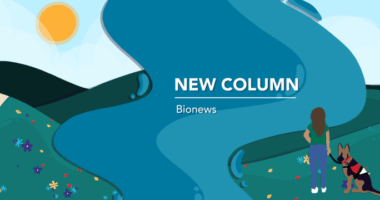Being Aware of Hope Is Half the Battle

A certain responsibility comes with being diagnosed with a rare disease. Because we know the details of our illnesses best, it is up to us to educate the world about them, so that greater knowledge and investment can be brought to our communities. This leaves me wondering what story I should tell.
Since undergoing a heart-lung transplant in 2018, I no longer live with pulmonary hypertension (PH) as a diagnosis. As a result, I’ve felt distant from the community and others fighting PH. I’ve been thinking about this lately as we approach the halfway point of Pulmonary Hypertension Awareness Month.
I know that PH is still the foundation of my story, and the reason for everything I’ve experienced since my transplant. The continuum of my journey is shaped by the fact that I was diagnosed with PH all those years ago. As a result, I still feel a responsibility to share my story and provide insight for others when I can.
After battling PH for 19 years, there are so many things I would like people to know, especially about my daily life during that time. I wrote an entire column about this. But when I think about awareness month, my priorities feel different.
I do, of course, hope to increase awareness of the signs and symptoms of PH, the treatments, and the impact the disease has on a person’s life. This list could go on and on. So much education needs to happen about this illness, and so many people, including healthcare providers, have no idea what it even is.
If I had to condense awareness into one thing, and if there were one piece of wisdom from my previous years that I’d want to share with a new patient or their loved one, I would say this: Be aware that with PH, there is hope.
When I was diagnosed with PH at age 4, my mother was convinced I would not become a statistic. Of course, she was open to hearing the realities of my illness, but she also viewed me as an individual who was capable of an infinite number of outcomes. She would never confine me to a predetermined percentage or prognosis.
And I believe she was right to think this way. Like many young patients, I was told that I would only live another two or three years with PH. Maybe I would live up to five years if I were to pursue a heart-lung transplant. Nevertheless, I ended up living 19 beautiful years of life before undergoing transplant. And although my transplant was marked by extreme complications — to the point that I probably shouldn’t have survived the hospitalization — I’m still alive three years later to write this now.
I will not sugarcoat this illness. I have witnessed many tragedies and losses. But I have also witnessed many miracles that defy reason. So, if there is something I would want the world to know about PH, it would be that it builds resilient people who can write their own stories and who have the possibility of surviving the odds. With every percentage and statistic, there is room for outliers. I and many others have proven this.
I’m so grateful for the healthcare providers who have diligently invested in my care over the years, during both PH and transplant. And I can’t say enough about my family and friends, who have supported me and given me reasons to continue the fight. I’m so thankful to be alive all these years later. I’m fortunate to tell a story that has held joy beside sorrow, and that has so bravely contradicted expectations.
I hope for a day when PH is cured and we no longer need to be aware of it. But for now, being aware of my own hope and miraculous survival feels like enough. If my hope can help you to foster your own, then we are one step closer to defying what we’ve been told. And that feels like half the battle.
***
Note: Pulmonary Hypertension News is strictly a news and information website about the disease. It does not provide medical advice, diagnosis, or treatment. This content is not intended to be a substitute for professional medical advice, diagnosis, or treatment. Always seek the advice of your physician or other qualified health provider with any questions you may have regarding a medical condition. Never disregard professional medical advice or delay in seeking it because of something you have read on this website. The opinions expressed in this column are not those of Pulmonary Hypertension News or its parent company, Bionews, and are intended to spark discussion about issues pertaining to pulmonary hypertension.









Leave a comment
Fill in the required fields to post. Your email address will not be published.